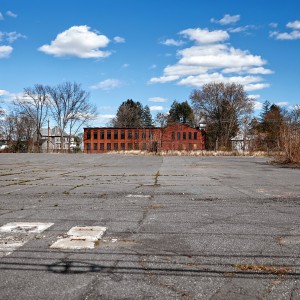Guest columnists Jim Nash and Dennis Bidwell: A cannabis cap would have made sense five years ago — Today it doesn’t
| Published: 01-16-2023 5:22 PM |
We were once enthusiastic sponsors of a proposed ordinance to cap the number of cannabis establishments in Northampton at 10. Based on the city’s experience with regulated cannabis sales in the last five years, however, we believe a similar ordinance today would be unnecessary and potentially damaging to youth.
When we proposed our ordinance in May 2018, retail sale of marijuana in Massachusetts was still several months away. Though there was a great deal of speculation, and spotty data from other states, none of us knew how the retail sale of marijuana would affect public safety, public health, the economic climate of Northampton, or Northampton’s image in the larger world.
Faced with uncharted territory, we proposed an ordinance as a circuit breaker, a tool for use at some point in the future if it seemed wise to halt the growth of retail sales in Northampton. At the time we reasoned if negative outcomes did not come to pass, then the ordinance could be rescinded, or the cap increased. But if, as this grand experiment unfolded, and the real experience of marijuana sales outlets brought legitimate problems, then we would have an available “pause button.”
That ordinance only secured four votes at City Council, not the five votes necessary for passage. So Northampton’s retail marijuana industry was set on a course to grow unencumbered by a cap, but protected by zoning restrictions, school buffers and the authority of the mayor to reject an applicant.
In November 2018, NETA made Northampton history when it opened the first recreational cannabis dispensary east of Colorado. On some days as many as 3,000 customers queued up around the block for the chance to buy their first legal marijuana. This was not an easy time. Traffic on Pleasant and Conz streets often came to a crawl. Neighborhood residents experienced daily parking woes and constant traffic. During that first year of adult use nearly 1 million people traveled down Pleasant Street to purchase cannabis products.
However, in a year’s time the cannabis rush started to wane as other outlets opened along the I-91 corridor and in neighboring communities. The number of Northampton cannabis retailers grew to 12, but has fallen back to 11 with a recent closure. All have strictly adhered to state regulations, twice checking IDs, first at entry and then again at purchase. The products are free of additives or pesticides and all are contained in child proof packaging. All product entering and leaving the premises is accounted for.
The public safety and public health concerns that motivated a proposed cap five years ago have simply not come to pass. Northampton Police Chief Jody Kasper has reported that dispensaries have required no more law enforcement attention than any other businesses in Northampton. Regarding youth usage of marijuana, a survey by the Hampshire County Prevention Coalition indicates that the 2022 “30 Day Use” rate for youth in Northampton is at 17.1%. This is the lowest it’s been in the last seven years, and even lower than the pre-legalization rate in 2015 of 19.5%.
What’s more, the maturing cannabis marketplace is providing its own restriction on the number of retail outlets in the city. One establishment has already closed. Others report a decline in sales because of the abundant competition in Northampton and the region. These sales reductions are reflected in declining taxes collected by the city from these businesses.
Article continues after...
Yesterday's Most Read Articles
Had we capped retail outlets at 10 back in 2018, the real experience of legal marijuana sales in Northampton would have most likely convinced the city to rescind the cap as unnecessary.
Which brings us to today. A cap at this time is not only unnecessary, but it also would have an adverse effect on the safety of our youth.
There is, and always will be, an underground market for unregulated, uninspected marijuana. This black market is fraught with crime and suspect product. The availability of legal marijuana puts a dent in this market, tilting the share of sales toward legal purchase rather than black market ones. To the extent the market allows, additional regulated cannabis retail outlets will further reduce the use of unregulated, dangerous cannabis. The real public health danger, especially for our youth, lies in the availability of black market marijuana.
Now is the time for a redoubled educational effort, aimed at both youth and adults, focusing on the impacts on youth brain development, the potential for addiction, and the dangers of impaired motor vehicle operation and improper storage. The city is already committed to prevention education with the fully-funded Northampton Prevention Coalition Coordinator position. Between the resources of the coordinator, the members of the Coalition and the Cannabis Control Commission, such enhanced educational outreach should be possible.
A final point. We have heard arguments that the proposed cap ordinance would be good for our existing local cannabis industry. No doubt it would help existing operations by prohibiting the opening of competitive outlets. But since when does local government step in to protect the bottom line of existing businesses by excluding the entry of competition? We don’t do that for beauty salons or pharmacies or anything else. It’s one thing to put a cap in place in the early stages of an industry’s development, before anyone has opened their doors. It’s another thing entirely to enact a cap that would freeze the market where it is, prohibiting further competition.
The proposed cap on cannabis establishments is a mistake. It would be harmful to minors, unfair to the business community and completely unnecessary.
Jim Nash is president of the Northampton City Council, representing Ward 3. Dennis Bidwell is the former Ward 2 city councilor.
 Columnist Andrea Ayvazian: Standing as witness to Armenian martyrs
Columnist Andrea Ayvazian: Standing as witness to Armenian martyrs Taylor Guss: Northampton's zoning should align with its climate goals
Taylor Guss: Northampton's zoning should align with its climate goals Guest columnist Bill Dwight: How to make sense of Northampton’s school budget dilemma
Guest columnist Bill Dwight: How to make sense of Northampton’s school budget dilemma Columnist Russ Vernon-Jones: Climate solutions tough, but can be done
Columnist Russ Vernon-Jones: Climate solutions tough, but can be done
